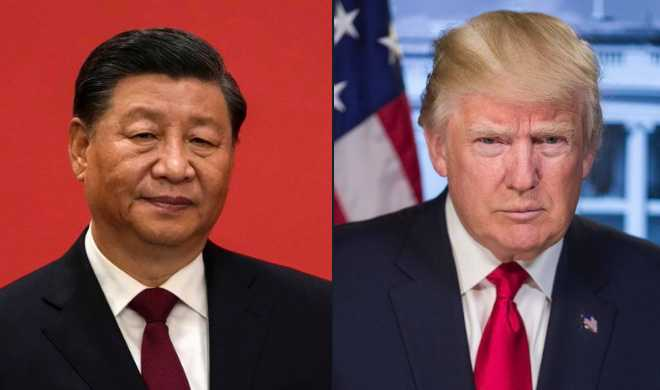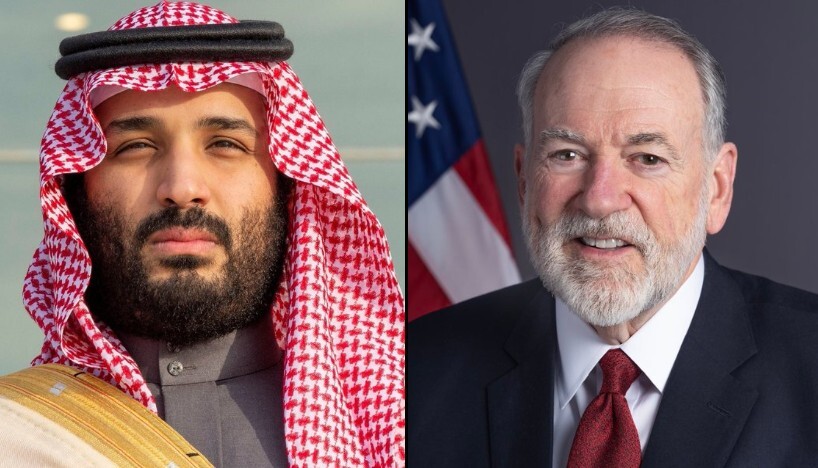China has announced a 125% tariff on U.S. goods, effective tomorrow, in response to the U.S. raising its tariffs on Chinese imports to 145%.
Chinese President Xi Jinping has called for negotiations with the U.S., stating that "there are no winners in a tariff war," and has urged Europe and Spain to join in defending free trade against what he calls "unilateral bullying" by the U.S.
China raised tariffs on U.S. goods from 84% to 125%, after the President Donald Trump imposed a 145% tariff on Chinese imports, which includes a 125% tariff plus an additional 20% for fentanyl-related issues.
"The U.S. side's imposition of excessively high tariffs on China seriously violates international economic and trade rules, runs counter to basic economic principles and common sense, and is simply an act of unilateral bullying and coercion," China's Finance Ministry said in a statement.
The tit-for-tat increases stand to make goods trade between the world's two largest economies impossible, analysts say, with import duties above around 35% wiping out Chinese exporters' profit margins and making American offerings in China similarly overly expensive.
Beijing indicated on Friday that this would be the last time it matched the U.S., in the event that Trump takes his tariffs any higher.
"Even if the U.S. continues to impose even higher tariffs, it would no longer have any economic significance and would go down as a joke in the history of world economics," the Finance Ministry's statement added.
"If the U.S. continues to play a numbers game with tariffs, China will not respond," it added. However it left the door open for Beijing to turn to other types of retaliation, reiterating that China would fight the U.S. to the end.
On Thursday, Beijing said it would immediately restrict imports of Hollywood films in response to Trump's tariff increases. Earlier this week, China focused its sights on U.S. services exports, issuing a travel advisory for citizens visiting the U.S. and an alert for students considering studying in the U.S. state of Ohio.
In his first public comments on the tariffs, President Xi Jinping told Spanish Prime Minister Pedro Sanchez during a meeting in Beijing that China and the European Union should "fulfil their international responsibilities... and jointly oppose unilateral acts of bullying", China's state news agency Xinhua reported.
Xi begins a three-nation tour of Southeast Asia next week, aiming to consolidate ties with some of China's closest neighbours as trade tension escalates with the United States.
The Trump administration announced that it has started trade negotiations with some European and Asian allies among over 75 countries which have expressed interest.
Chinese Commerce Minister Wang Wentao has sought to get ahead of U.S. negotiators, holding video calls this week with his counterparts from the EU and Malaysia, which is chairing ASEAN this year, as well as Saudi Arabia and South Africa, by way of reaching out to Gulf countries and the Group of 20 and BRICS nations.
"China remains open to negotiations with the U.S., but threatening and pressuring are not the right way to engage with China," the country's Commerce Ministry said in a separate statement.
International trade experts and business leaders have long accused the Chinese regime of rampant cheating since the country joined the World Trade Organization(WTO).
Canadian businessman and co-host of 'Shark Tank,' Kevin O'Leary, in recent interviews with press, has accused China of unfair trade practices and intellectual property (IP) theft, advocating for aggressive measures to address these issues. He has called for tariffs as high as 400% on Chinese imports to force China to comply with international trade rules and protect American businesses and innovation.
O'Leary has repeatedly stated that China has not adhered to the rules and regulations it agreed to when joining the World Trade Organization (WTO) in 2000. He argues that Chinese companies engage in systematic product duplication and IP theft, which undermines American businesses and innovation.
According to a 2019 survey by CNBC, one in five corporations reported that China had stolen their IP within the past year, and one in three believe it has happened over the past century. Congress estimated in 2017 that these practices cost the U.S. between $225 and $600 billion annually, a figure that has likely increased since then.















